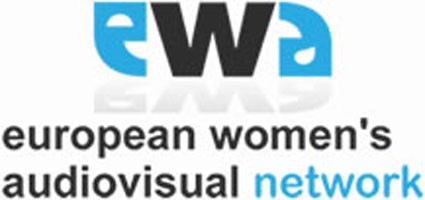A new study has found that only one in five European films is directed by a woman, while 84% of public-funding resources go to male-directed films. Those are two of the
dire statistics that emerge from a new report on gender equality in seven European
countries, conducted by the European Women’s Audiovisual Network (EWA). The pan-European association presented its research along with recommendations for
policy changes at the Berlin International Film Festival on Saturday.
“The aim is to give the evidence, so we can achieve a
strategy to change,” said Holly
Aylett, Head of Research at the EWA. And the evidence of gender imparity is
clear. In the seven participating countries — Austria, Croatia, France,
Germany, Italy, Sweden and the UK, chosen to represent a variety in size and
geography — women constitute 44% of film school graduates, but only 24% of directors
working in the industry.
The
numbers vary from country to country. Sweden has a 50/50 gender share as a
result of funding quotas at the Swedish Film Institute, whereas the percentage
of female directors in the UK is only 10%. The average across Europe is 21%,
which is higher than in the U.S. — the most recent study from San Diego State
University showed that women accounted for 13% of the directors of the top 700
films — but still far from impressive.
The
EWA study, which contains qualitative interviews with 1,000 industry professionals,
identifies barriers for women: gender bias, struggle for funding,
risk aversion, absence of statistics, pay differentials and low representation
of women on commissioning and funding panels.
“It’s a structural problem,” stressed Holly
Aylett. “I’ve sat on a lot of panels, and we quite often end up at a
depressing point where women are sharing and swapping experiences of being discriminated
against — which takes it to the level of the individual and the question of
whether we have the talent. I think we have to change that. We have to
acknowledge that we have a system that is marginalizing women and is making it
really difficult for women directors to sustain their careers. We’re up against
structures — it’s not a question of whether you or me or anyone can do
it.”
In fact, the report proves that women certainly can do it. Female-directed films are
proportionally 10% more likely to participate in a film festival and 6% more
likely to win an award. Yet, women are significantly underrepresented at A-list
festivals — for example, only 9% of the competition films at this year’s Berlinale are directed by women.
To shift the structures reinforcing inequity, the EWA recommends affirmative
action, both on a national and an EU level, in order to:
— Address the under-representation of female
directors in educational programs
— Equalize the distribution of public funds
— Achieve equal representation and greater awareness
on commissioning boards
— Incentivize producers to support female directors
— Provide much greater support and
a targeted strategy for publicity, advertising and distribution
— Maintain and monitor the
necessary statistics.
Read
the full executive resume with all 15 recommendations here.
Currently,
there is a disparity between the treaties for equality, which the EU members
all signed on to, and the statistics they are delivering. But the study also shows a
willingness to change. 94% of the respondents declared awareness of inequality
in the industry and, quite surprisingly, almost 70% supported using quotas to
achieve targets.
Aylett
added that she was always puzzled by some female directors’ resistance to
quotas on the basis on feeling patronized and not wanting to be chosen because
of their sex, since when men have been selected because of their sex for more than a
hundred years. “In my opinion, it should be male directors who are feeling patronized, because they are
constantly benefiting from male privilege,” she said. “If Europe
wants to be an inclusive cultural space, we have to take action.”
At
the conference, panelists Isabel Castro, Deputy Director of Eurimages Film
Fund; Pauline Durand-Vialle, CEO of Federation of European Film
Directors; Beryl Richards,
Chair of Directors UK; Esther Gronenborn, Pro Quota in Germany; Prof. Elizabeth
Prommer, University of Rostock; and
Nicole Ackermann of WFTV DE were positive about the recommendations and the
prospect of using the new data to raise awareness and lobby for change. “Hard
data is the stepping stone,” said Durand-Vialle. “When you lobby in
the EU, you will not be heard without data. That’s why [this] work is very
useful.”
Francine
Raveney, Director of the EWA Network, ended the conference on a high note: “Everyone on board recognizes that gender
inequality in the European film industry hasn’t thus far been treated with the
serious measures it requires,” she said. “We need to work together to
make a change, for example, by joining networks. We need to ensure public money
is divided equally, because private financing is a far more uncontrollable
beast. But above all, women need to have faith in their abilities and be ready
to fight tooth and nail to their righteous space as a female director or any
female in the film industry. We deserve our spot in what has hitherto been a
bit of a boy’s club. Keep climbing this mountain, and let’s work together.”
Read the EWA study’s executive summary here.







